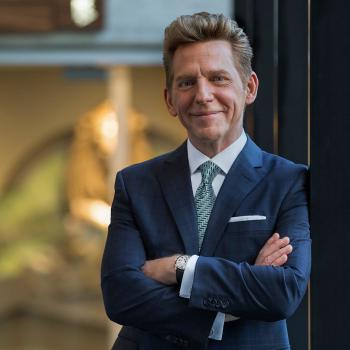by Wayne Edward Hanson
What Scientologists believe is best understood through this principle, outlined in the essay “Personal Integrity” by Scientology Founder L. Ron Hubbard: “What is true for you is what you have observed yourself. And when you lose that, you have lost everything.”
 In fourth grade, for example, I asked my teacher the definition of a word. I had a good vocabulary and was a good reader, and she said to me “You’re smart enough to figure it out from context.”
In fourth grade, for example, I asked my teacher the definition of a word. I had a good vocabulary and was a good reader, and she said to me “You’re smart enough to figure it out from context.”
I liked my teacher very much and she was telling me I was smart, which I thought was pretty cool, so from then on, I thought that the exact definitions of words were unimportant, the context was what mattered. And as a result of that conversation, I refused to open a dictionary—only stupid people had to use a dictionary because they weren’t “smart enough to figure it out from context.”
In high school, however, I began to feel less smart. I took Latin and crashed into incomprehensible grammar. I took geometry and had a hard time. I thought perhaps my teacher was wrong, I wasn’t that smart after all, I had run into difficult subjects and my grades dropped.
My fourth-grade teacher’s “truth” that I was smart enough to figure it out from context, no longer worked for me. I still thought that smart people could figure out things from context, I just wasn’t that smart, she had overestimated my abilities. Bummer.
At age 30, after I struggled through university for four years and became a teacher myself, I found Scientology and took a class on how to study. The first datum I read in the study materials was obviously wrong. “The only reason a person gives up a study or becomes confused or unable to learn,” it said, “is because he or she has gone past a word that was not understood.” I told the instructor that idea was just flat wrong, it was context that mattered, not words.
He did not say I was wrong, he just said I should try it out, see if it worked, see if it was true for me. I bought a dictionary, carried it home in a brown paper bag so people couldn’t tell I was a stupid guy, and got out my old geometry textbook. I don’t know why I saved it, maybe it was a war souvenir, sort of like a World War II veteran carrying some shrapnel in his leg. On the cover in big letters, it said “GEOMETRY II.” So I opened my new dictionary and looked up “Geometry.”
“Geometry,” my dictionary said, “is a branch of mathematics that deals with the measurement, properties, and relationships of points, lines, angles, surfaces and solids.” Since there was no one else around, I looked up “mathematics” as well. And something started to click. Mathematics was “The science of numbers and their operations,” the dictionary said. So numbers were quantities, and operations were what you did with them. Quantities and actions–pretty simple! I felt a little smarter, somehow. So back to geometry. Geometry has lines and angles and so on, OK, and there are rules to figure out how much space there is in a triangle for example. But why would anybody want to know that?
Geometry, according to my dictionary, comes from the words geo which means Earth, and metry which means measure. Turns out the river Nile used to flood every year, and that washed out property markers, so the Egyptians had to figure out how to mark off property lines after the yearly floods, so neighbors wouldn’t get mad and run over each other with chariots or something. So they “measured the Earth” to do that. And they also used geometry to build the pyramids.
Well, how about that! I got all enthusiastic about geometry and looked up other words like hypotenuse and right angle. And I felt a lot smarter! I still love my fourth-grade teacher, but I won’t use her idea of context anymore.
When I went back to my Scientology class on how to study I had to hide my enthusiasm from the instructor, because I didn’t want to admit that I had been wrong all these years. But I told him in a kind of bored way that yes, it did seem to help, and I would look up words when I studied.
So that’s an example of “What is true for you is what you have observed yourself.” And if you ask a Scientologist what he or she believes, you are likely to get a list of principles on which that person has absolute certainty because they tried them out and they worked for them. Scientology is an applied religious philosophy, which means it is meant to be used in the everyday world to solve problems, build better relationships and improve conditions. Nobody tells you what you must believe in Scientology, and if something does not seem true for you, you are free to say “that’s not true for me.”
Does God exist? Is global warming a threat? Do vaccines cause autism? Scientologists come from every part of the political, religious and social spectrum and there is no orthodoxy of belief, except a shared certainty, from personal observation, that Scientology principles when applied, work predictably and help to improve individuals, families, groups and mankind. And if you have heard otherwise, check it out for yourself. Look up Scientology.org, Scientology.tv, buy a Dianetics book or walk into one of the 11,000 Scientology churches, missions and groups around the world. Look for yourself and see what’s true for you.








